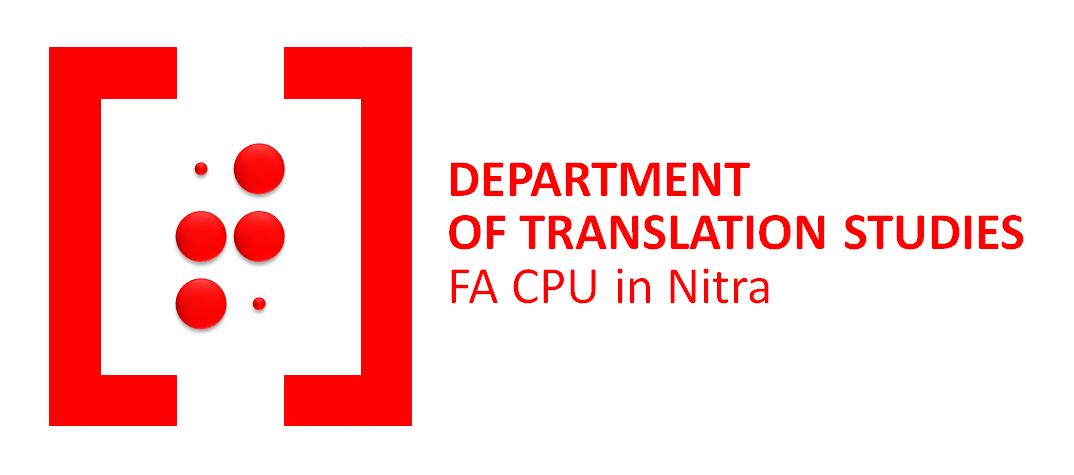The 11th Scientific Doctoral Conference Tradition and Innovation in Translation Studies Research titled Perspectives in Translation and Interpreting took place on the 6th and 7th February, organised by the Department of Translation Studies.
In order to include as many international participants as possible, the organisers made the decision to host the conference online. This turned out to be a highly popular choice, as it included more than 50 participants with nearly a half of them from outside of Slovakia.
The event was opened in the name of the Dean Prof. Martin Hetényi PhD by PhDr Daša Nováčiková PhD, who applauded the fact that the conference gathered international attention and praised our doctoral students for developing strong international ties. Doc. Mgr Emília Perez, the head of the Department, highlighted the long tradition of this conference and appreciated seeing both new and familiar faces. Lastly, Mgr Jana Boltižiar welcomed everyone in the name of all organisers and emphasised that researchers should be open to new perspectives; in the words of William Blake: “If the doors of perception were cleansed every thing would appear to man as it is, Infinite.”
Our keynote speaker, professor Dragoș Ciobanu from the University of Vienna imparted a number of tips and some excellent advice for our doctoral students and early career researchers about how to plan a meaningful career in translation studies and how to keep up with the changing trends in our field.
The aim of the conference was to reflect on the varying perspectives and trends in translation studies research. The two days were divided into the following four thematic sections.
Section Translation Technologies and Interpreting included highly informative papers on interpreting in the time of the migrant crisis, machine translation postediting and the use of technologies in coordinating work processes or translator training. Section on the theory of translation included papers on language teaching in translation studies, the use of translation in teaching foreign languages, poetry in translation seminars and research on the training of editors in translation studies.
The second day included a section on literary translation and contained interesting information on the role of a translator in translating Quran, intersemiotic translations in Neil Gaiman’s The Sandman, translation analysis of fictional words in graphic novels, and a participant from faraway China introduced her research on English translations of Chinese science fiction.
The last section was dedicated to audiovisual translation and accessibility. We heard presentations on subjects such as bad practice in language services focusing on audiovisual translations, various forms of audiovisual translation in Italy, translation studies perspective on fan versions of the animated film Mulan, and, as audiovisual translation is a well-established field in the Department, we finished with a talk from our doctoral student on the (in)accessibility of cultural spaces and live events to disadvantaged communities in Slovakia.
All presentations ignited interesting discussions that involved presenters, guests, members of the department as well as the audience.
Lastly, the organisational team thanked everyone for their participation, in particular students from the Department for interpreting of the whole event as well as the scientific committee for their constructive questions and helpful tips for early career researchers. Many participants expressed their satisfaction with the organisation of the conference, as well as its high scientific merits. Many were interested in a taking part in the following years. Everyone left the conference not only with new findings and information, but also with new ideas, inspiration and motivation in our work.


